Properly selected houseplants able to significantly improve the indoor climate. This is especially necessary in megacities, where the air needs to be humidified, oxygenated, even thoroughly cleaned. And green decor copes with these tasks no less efficiently than simple gadgets.
Non flowering plants
Indoor "pets" that look beautiful even without flowers are good for their pickiness. A large leaf area allows them to quickly absorb pollution and vice versa, to give oxygen to the surrounding space. Suitable for maintenance in small rooms, effective, in terms of cleaning the air masses are:
- Ficus Benjamin;
- dieffenbachia;
- sansevieria;
- Hamedorea
- aloe.
Ficus with small and numerous leaves loves a high level of humidity and requires regular watering, in such conditions it will actively collect dust from the air, which is easy to wash off with ordinary water. The plant tolerates bathing perfectly, responding with active growth. The main advantage of the species is its ability to capture harmful particles formed by plastic and glue, which are part of inexpensive furniture. Therefore, it is recommended to install ficus in new apartments, after repair and renovation of the interior.
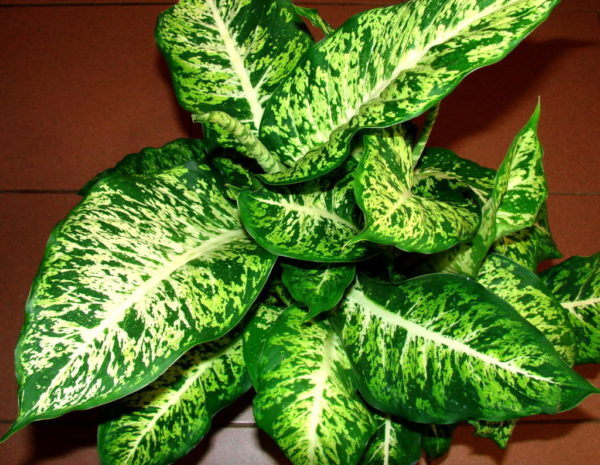
Dieffenbachia will be useful to everyone who suffers from allergies, has low immunity. Its leaves can collect staphylococci from the air and destroy them, which will be an effective prevention of common pulmonary diseases. This type of plant, regardless of the type of leaf color, quickly catches poisonous substances that emit coatings, often used in decoration.
Sansevieria is a good choice for those who do not like to carefully care for indoor plants. Dense and large sheets grow quickly, are not afraid of sparse watering, tolerate shade, high and low temperatures. At the same time, “mother-in-law's tongue”, as this species is often called, quickly absorbs formaldehydes and nitrogen oxides, which are abundant in urban areas. Therefore, it is better to put pots with a plant directly on the window, in the immediate vicinity of new cabinet furniture.
Flowering species
Many indoor plant varieties several times a year delight their owners with numerous bright buds, while helping to make the microclimate healthier. It is not necessary to choose the capricious azalea or begonia, for which continuous monitoring is required. More preferred for a standard living space would be:
- pelargonium;
- spathiphyllum;
- gerbera.
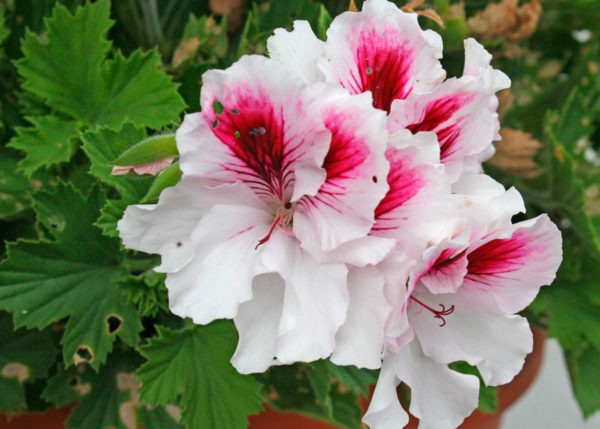
Pelargonium, which is also homemade geranium, has a pronounced smell, which testifies to its unique properties. The leaves are literally covered with natural antibacterial compounds that spread through the rooms with the slightest breeze. Therefore, it is better to put the flower directly on the window, it is not afraid of drafts. Essential oils, which are also released in small quantities from the green parts of the plant, have a calming effect and can become a full-fledged replacement of air ionization that is fashionable today.
A flower with the beautiful name “feminine happiness” blooms all year round with the right watering regime, even if there is very little light in the room. At the same time, he is actively taking mold spores from the environment. A very small pot can be placed even in the bathroom, where such an effect is especially necessary.
Gerberas are rarely planted at home, since it is difficult to achieve flowering not in the open ground. However, just the greenery of this plant is good for health. This is one of the few species that can take benzene compounds from the environment. They can be hidden both in plastic, and in finishing materials, paints. As a rule, in large cities, industrial centers, the level is exceeded, albeit slightly. Such air purification will quickly improve the quality of sleep, get rid of the manifestations of allergies.
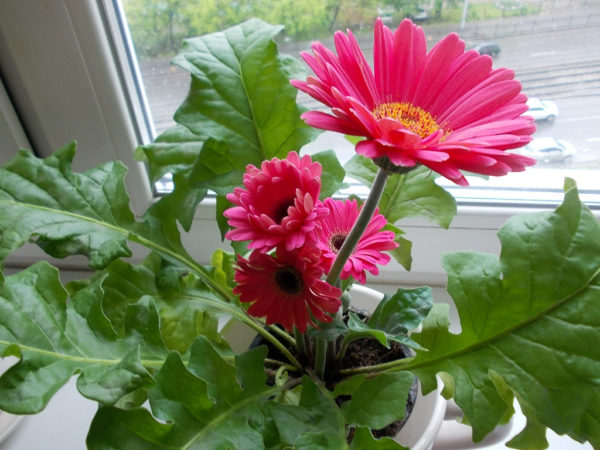
Everyone, even a beginner grower, can use indoor plants as unique filters for air purification. Unpretentious species such as spathiphyllium, sansevieria require only rare watering, and with proper care, you can achieve spectacular flowering of useful species such as gerbera or geranium. Thus, it is possible to rid the air masses not only of dust and allergens, but also of formaldehydes, bacteria, viruses, mold and spores of fungi.

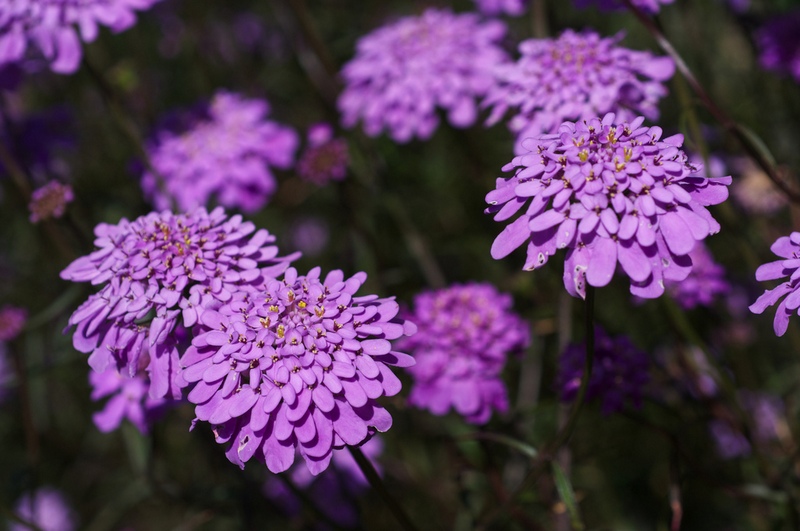 Sow in the ground, without seedlings: 10 beautiful and unpretentious flowers
Sow in the ground, without seedlings: 10 beautiful and unpretentious flowers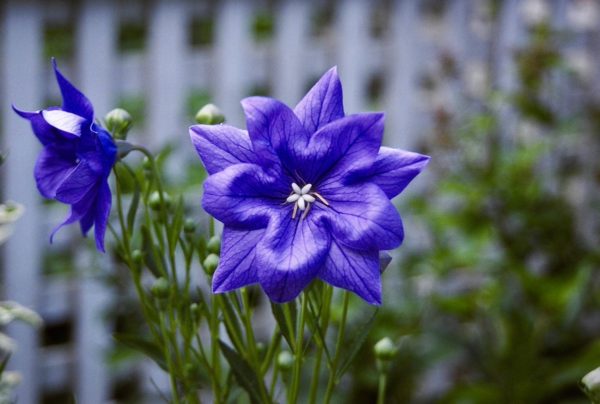 Platicodon planting and outdoor care
Platicodon planting and outdoor care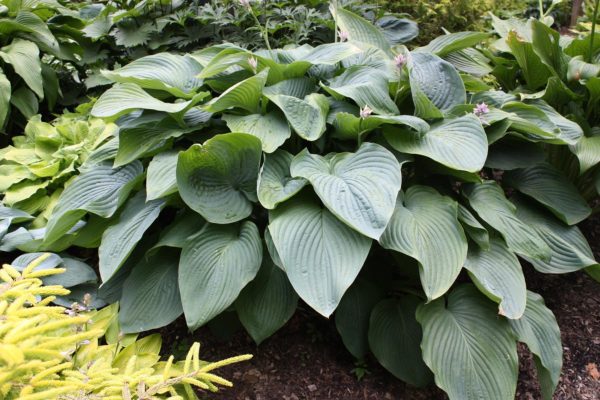 Hosta - planting and care in the open ground in the Urals
Hosta - planting and care in the open ground in the Urals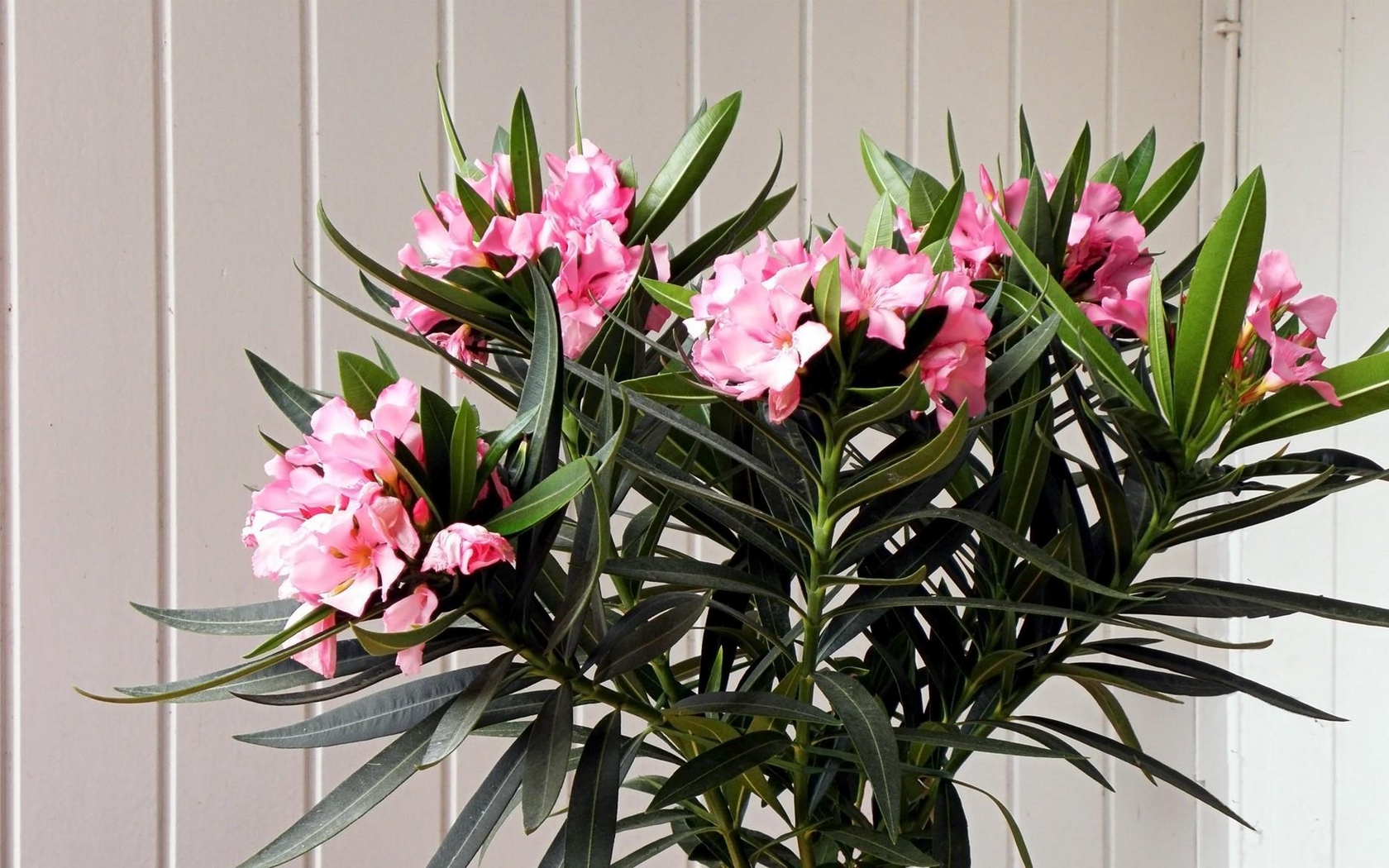 Oleander - care and growing at home
Oleander - care and growing at home